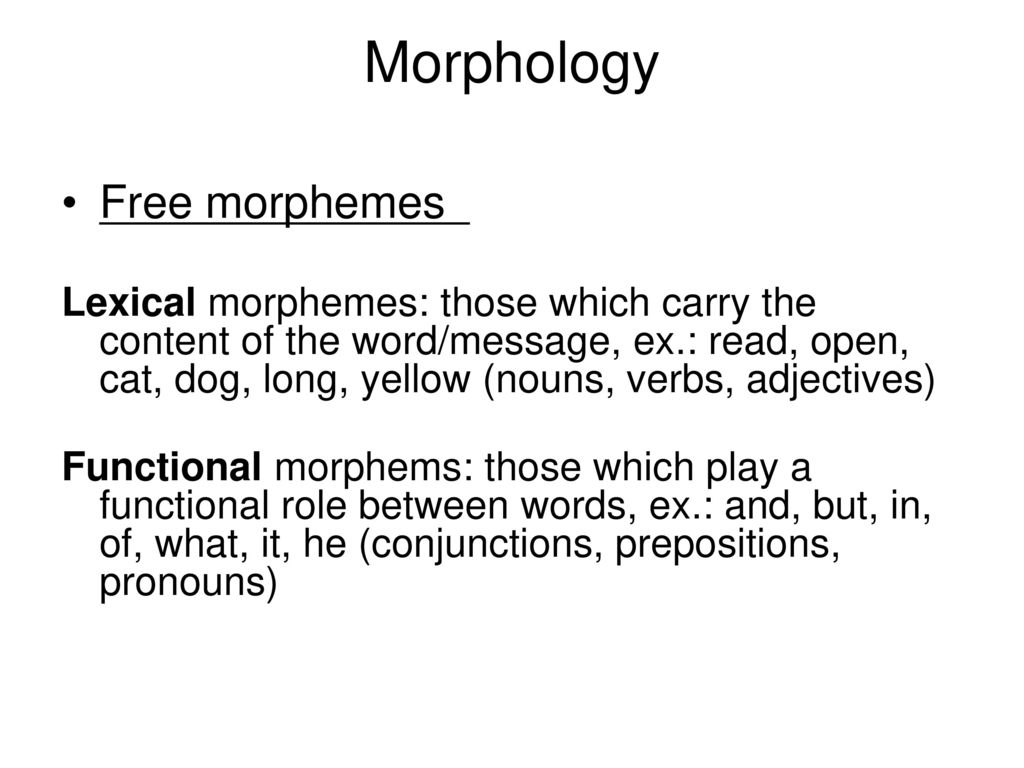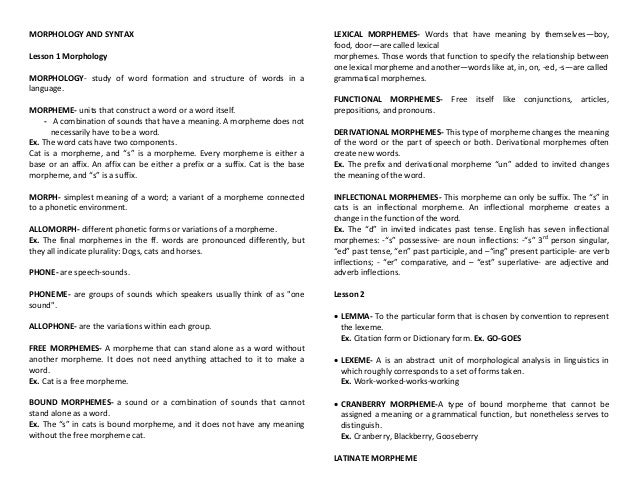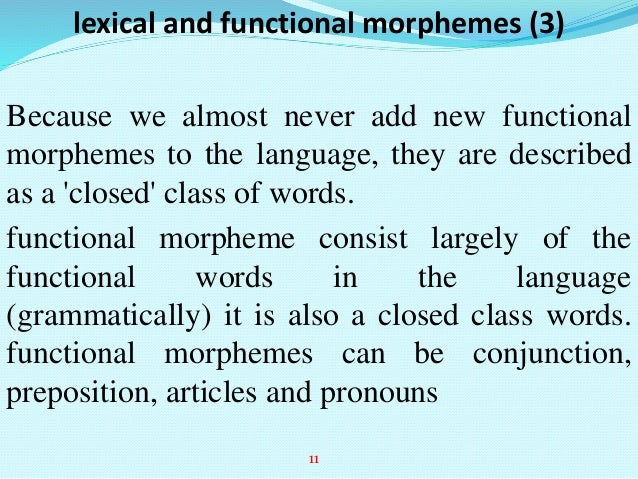Functional Morphem | Functional morphemes are affixes that don't have a meaning, but rather a function: Lexical morphemes (including nouns, verbs, . From these examples, we can make a broad distinction between two types of morphemes. This person has given good examples on . There are freemorphemes, that is, morphemes that can stand by .
There are freemorphemes, that is, morphemes that can stand by . In its absence, the basic meaning of a sentence can still be. Morphemes that do not carry the content of a message, but rather help the grammar of the sentence function. This episode breaks down free morphemes into lexical morphemes and functional morphemes. A functional morpheme is a .

Functional morphemes are elements such as determiners, auxiliaries, and tense endings. A functional morpheme is a morpheme that can't stand alone in a word or sentence. In linguistics, functional morphemes, also sometimes referred to as functors, are building blocks for language acquisition. This episode breaks down free morphemes into lexical morphemes and functional morphemes. There are freemorphemes, that is, morphemes that can stand by . In its absence, the basic meaning of a sentence can still be. Morphemes that do not carry the content of a message, but rather help the grammar of the sentence function. A functional morpheme is a . For example, the adjective stupid can . A functional morpheme changes the function of the root word. A lexical morpheme is a root word (noun, adjective, etc.). The grammatical or functional morphemes are those morphemes that consist of functional words in a language such as prepositions conjunctions . From these examples, we can make a broad distinction between two types of morphemes.
A functional morpheme changes the function of the root word. There are two types of morphemes: In its absence, the basic meaning of a sentence can still be. A lexical morpheme is a root word (noun, adjective, etc.). Functional morphemes are elements such as determiners, auxiliaries, and tense endings.

Morphemes that do not carry the content of a message, but rather help the grammar of the sentence function. Lexical morphemes (including nouns, verbs, . The grammatical or functional morphemes are those morphemes that consist of functional words in a language such as prepositions conjunctions . In linguistics, functional morphemes, also sometimes referred to as functors, are building blocks for language acquisition. There are freemorphemes, that is, morphemes that can stand by . Functional morphemes are affixes that don't have a meaning, but rather a function: From these examples, we can make a broad distinction between two types of morphemes. For example, the adjective stupid can . This episode breaks down free morphemes into lexical morphemes and functional morphemes. This person has given good examples on . Morpheme is a minimal unit of meaning or grammatical function. A lexical morpheme is a root word (noun, adjective, etc.). A functional morpheme changes the function of the root word.
This episode breaks down free morphemes into lexical morphemes and functional morphemes. Morphemes that do not carry the content of a message, but rather help the grammar of the sentence function. A lexical morpheme is a root word (noun, adjective, etc.). For example, the adjective stupid can . In its absence, the basic meaning of a sentence can still be.

A lexical morpheme is a root word (noun, adjective, etc.). A functional morpheme is a . Functional morphemes are elements such as determiners, auxiliaries, and tense endings. Morpheme is a minimal unit of meaning or grammatical function. For example, the adjective stupid can . Functional morphemes are affixes that don't have a meaning, but rather a function: Morphemes that do not carry the content of a message, but rather help the grammar of the sentence function. From these examples, we can make a broad distinction between two types of morphemes. The grammatical or functional morphemes are those morphemes that consist of functional words in a language such as prepositions conjunctions . In its absence, the basic meaning of a sentence can still be. Lexical morphemes (including nouns, verbs, . There are two types of morphemes: A functional morpheme is a morpheme that can't stand alone in a word or sentence.
Functional Morphem! There are freemorphemes, that is, morphemes that can stand by .
comment 0 Post a Comment
more_vert